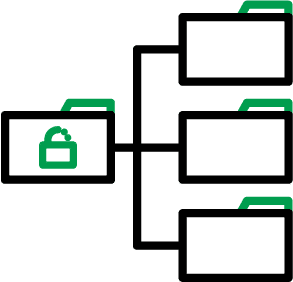Off THE SCALES.
SCALABILITY WITH LOBSTER_DATA.
Scalability in relation to Lobster_data refers to the software’s ability to process rapidly growing data volumes and increasingly complex processes without any loss of performance. In the fast-paced digital industry and highly dynamic economic environment, this is a particularly important unique selling proposition (USP).
CUSTOMERS WHO RELY ON LOBSTER.








SCALABLE FRAMEWORK.
With Lobster, you can plan your investment flexibly, as the Lobster_data maintenance contract is scalable and always covers upgrades and updates. This way, you can be sure right from the start that your investment in the software remains manageable and can be adjusted to any developments. Installation on customer-owned on-premise infrastructure, hosting in your private cloud or the Lobster cloud, outsourcing to other providers? Everything is possible.
Likewise in interface development. Our offerings range from do-it-yourself, Lobster mapping services, accompanying consultation to handing over the complete managed services package to Lobster. Migration and switching between delivery and service models are also possible at any time.
Lobster_data runs on any system with a Java Development Kit (JDK) due to the platform-independence of Java.
SCALING APPROACH.
The scalability of Lobster_data is achieved through a combination of architectural design, hardware utilisation, and software optimisation. The software uses a modular architecture that allows adding new components and services as needed to ensure the system can handle growing data volumes and user requirements. In short, it can be said that scalability is one of the key aspects in the design of Lobster_data.
The term vertical scaling means increasing the capacity of a system by adding new components to it to ensure constant system behaviour over large load ranges. This means that a system does not experience too much delay under low, medium or high load and that requests can be processed quickly.
Infrastructure extensions with CPU, memory to the server as the host system of Lobster_data directly affect both the performance and the processing scope of the Lobster_data system.
The Lobster_data “Process Load Optimization” (PLO) module is a service for optimised processing under very high process loads. The module significantly improves performance when the Lobster Integration Server is running natively or virtually on a server with multiple processor cores and the Lobster_data queues cannot be completely processed during load spikes over an extended period. To achieve this acceleration, additional intelligent algorithms for predictive thread pooling were developed, continuously optimised through extensive testing, and consolidated in the PLO module.
The XML V4 parser offers significant performance gains with extremely low memory consumption, even with input files up to approx. 100 MB, the runtime is reduced by a factor of 10. Extremely large XML input data up to a maximum of 250 GB can be parsed without any problems.
The ASM (Asynchronous Send Module) add-on module is used to transmit any number of files to a communication partner in one session. ASM collects the files and transmits them at a defined time. Optionally, these files can be packed in archive containers (ZIP, TAR, etc.) beforehand. The maximum number of files in a session can also be defined.
Horizontal scaling means increasing the performance of the Lobster_data system by adding additional nodes. Load distribution across several working nodes controlled by a central node controller allows for the linear handling of processes. The more working nodes are added, the more processes can be performed in parallel. The distribution takes place either via “Round Robin” or via load factors.
A Lobster_data system automatically increases availability starting with at least two nodes in an active-active hot-standby configuration. With the addition of each further working node on separate infrastructure, the availability increases in the direction of high availability (HA).













